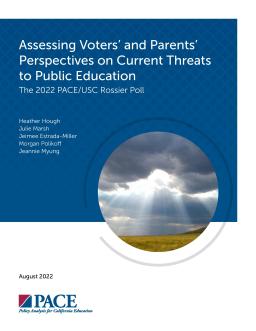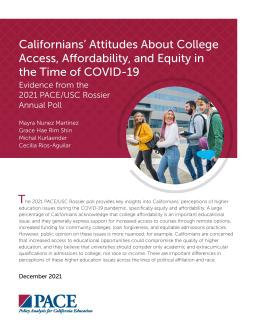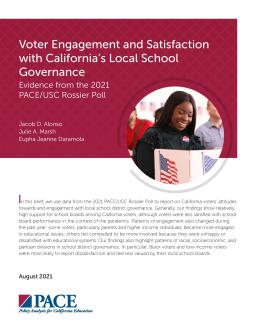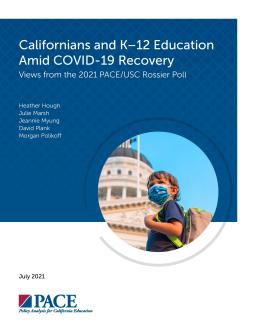INITIATIVE
PACE/USC Rossier Voter Poll

How does the public view California’s schools and education policy effectiveness? Do voters understand the challenges that California faces, and are they prepared to make the tough choices and tradeoffs that potential solutions entail? Polls conducted by PACE and the Rossier School of Education at the University of Southern California seek to learn more about how Californians perceive and understand the opportunities facing California’s education system, and to gauge voter interest in policy options that move the system forward.
For full data from each year of the PACE/USC Rossier Poll can be found in the Poll Archive.
Topics Related to this Initiative
Related Commentaries
Moving Forward from COVID-19: Voters’ Opinions on Educational Equity Initiatives in California
Summary of the 2020 PACE/USC Rossier Poll Results Presentation
Voter Distaste for Sacramento Could Sink Education Initiatives
Related News
Recent Initiative Publications

The 2022 PACE/USC Rossier Poll
The 2021-22 academic year in California was challenging for public education due to eight issues that threaten student learning, schools, and public education itself, including gun violence, declining enrollment, and long-term funding inadequacy.…

Evidence from the 2021 PACE/USC Rossier Annual Poll
The 2021 PACE/USC Rossier poll examines Californians’ views on higher education during COVID-19, highlighting equity and affordability. Californians recognize college affordability as crucial and support remote learning options, community college…

Evidence from the 2021 PACE/USC Rossier Poll
The brief reports on California voters’ attitudes and engagement with local school district governance using data from the 2021 PACE/USC Rossier Poll. The findings show high support for school boards, but less satisfaction with their performance…

Views from the 2021 PACE/USC Rossier Poll
Growing inequities and lessons learned during the COVID-19 pandemic together with billions of dollars in new funding present an opportunity to make substantial changes to K–12 education to b



